Preventive care is a crucial aspect of maintaining good health. It involves taking proactive steps to prevent diseases before they occur.
This approach to health care can help detect potential health issues early. Early detection often leads to more effective treatment and better health outcomes.
Preventive care encompasses a wide range of health services. These include routine check-ups, wellness exams, health screenings, and maintaining up-to-date vaccination schedules.
Adopting a healthy lifestyle is also a key part of preventive care. This includes following a balanced diet, engaging in regular physical activity, and managing stress effectively.
Patient education plays a significant role in preventive care. It empowers individuals to make informed decisions about their health.
Preventive care is not just about preventing diseases. It also involves managing existing health conditions to prevent them from worsening.
In this article, we will delve into essential preventive care tips for everyone. We aim to provide you with practical advice to incorporate preventive health measures into your daily life.
By understanding and implementing these tips, you can take control of your health and lead a healthier, happier life.
Understanding Preventive Care and Its Importance
Preventive care focuses on disease prevention rather than treatment after a disease occurs. It plays a vital role in promoting long-term health and wellness.
One key objective of preventive care is to detect health issues early. Early detection often prevents diseases from developing into more serious, chronic conditions.
The benefits extend beyond individual health. Preventive care can also reduce healthcare costs for both individuals and the healthcare system.
Several crucial components form the backbone of preventive care efforts. Regular health screenings, wellness exams, and vaccinations are fundamental practices.
Preventive care also involves educating patients about health risks and lifestyle changes. Informed patients are better equipped to make decisions that improve their health.
To summarize, preventive care is an essential aspect of healthcare that offers numerous benefits. It empowers individuals to take charge of their health and reduce their risk of developing serious health conditions.
The Role of Wellness Exams
Wellness exams are routine check-ups designed to assess overall health. They allow healthcare providers to evaluate physical and mental well-being.
During these exams, various aspects of health are monitored. This includes blood pressure, heart rate, and other vital signs to ensure they are within healthy ranges.
These exams provide an opportunity to discuss any health concerns. They also help update vaccinations and schedule necessary health screenings.
Regular wellness exams play a significant role in preventive care. They aid in the early detection of potential health problems before they become more serious.
The Benefits of Routine Check-Ups and Early Detection
Routine check-ups are an essential part of maintaining good health. They offer a proactive approach to identifying health issues early.
Early detection during these check-ups can significantly improve treatment outcomes. It allows for interventions to begin earlier, often leading to better health results.
Routine check-ups are beneficial for monitoring existing health conditions. They help manage these conditions effectively, preventing them from worsening over time.
In addition, regular visits provide a chance to discuss lifestyle habits with a healthcare provider. This supports overall health and wellness by making informed changes if necessary.
Health Screenings: What You Need to Know
Health screenings are a preventive measure to identify potential diseases early. These tests are crucial for detecting conditions that may not show symptoms initially.
Screenings vary based on age, gender, and personal health history. They help identify issues like high blood pressure, diabetes, and various cancers.
Common health screenings include:
- Blood pressure tests: Monitor for hypertension risks.
- Mammograms: Detect breast cancer in women.
- Colonoscopies: Screen for colorectal cancer.
- Cholesterol tests: Evaluate heart disease risk.
- Pap smears: Identify cervical cancer risk.
These screenings can lead to early interventions and are vital for effective disease prevention.
Screenings often occur during wellness exams and check-ups. It’s important to follow the recommended schedule for these tests.
Vaccination Schedules: Staying Up-to-Date
Vaccinations play a pivotal role in preventive health. They protect individuals and communities from various infectious diseases.
Keeping an up-to-date vaccination schedule is crucial. It ensures maximum protection against diseases, especially for children and vulnerable populations.
Healthcare providers can help track and manage necessary vaccinations. They offer guidance on which vaccines are needed based on age and health status.
Vaccines are not just for children. Adults need booster shots and vaccines for conditions like flu, pneumonia, and shingles.
Staying informed about vaccination schedules helps maintain health. It also contributes to community immunity, protecting those who cannot be vaccinated.
Adopting a Healthy Lifestyle: Practical Tips
A healthy lifestyle is key to effective preventive care. It involves integrating habits that promote long-term well-being.
To adopt a healthier lifestyle, focus on gradual changes. Small, consistent steps often have a significant impact over time.
Here are some practical tips to help you get started:
- Eat a balanced diet: Include plenty of fruits and vegetables.
- Exercise regularly: Aim for at least 150 minutes of moderate activity weekly.
- Sleep well: Get 7-9 hours of quality sleep each night.
- Manage stress: Practice relaxation techniques like meditation or yoga.
- Stay hydrated: Drink water throughout the day for optimal hydration.
Educate yourself about the benefits of these habits. Being informed makes it easier to incorporate them into daily routines.
Support from friends or family can be invaluable. Encourage each other to stay committed to these lifestyle changes.
Nutrition and Diet for Disease Prevention
Nutrition is a cornerstone of health. A well-balanced diet can prevent a variety of diseases and improve overall well-being.
Focus on consuming a variety of nutrient-rich foods. Incorporate whole grains, lean proteins, and a rainbow of fruits and vegetables.
Limit intake of processed foods and refined sugars. These can contribute to chronic diseases like diabetes and heart disease.
Include foods high in fiber, which supports digestive health and can lower cholesterol levels. Fiber also helps maintain a healthy weight.
It’s essential to moderate portion sizes. This approach prevents overeating and helps maintain a balanced energy intake.
The Power of Physical Activity
Physical activity is one of the most effective tools for disease prevention. Regular exercise improves cardiovascular health and strengthens the body.
Incorporating movement into daily routines doesn’t require a gym. Activities like walking, cycling, or dancing can be enjoyable and effective.
Exercise enhances mood and mental health. It releases endorphins, which are chemicals in the brain that act as natural mood lifters.
Consistency is key. Finding activities that you enjoy increases the likelihood of maintaining an exercise routine over the long term.
Physical activity helps regulate weight. It also reduces the risk of developing diseases such as type 2 diabetes and hypertension.
Stress Management and Mental Health
Stress is a normal part of life, but chronic stress can harm health. Effective stress management is an important component of preventive care.
Meditation and deep-breathing techniques are useful tools for reducing stress. These practices promote relaxation and mental clarity.
Maintaining social connections with friends and family can act as a buffer against stress. Support networks enhance emotional well-being.
It’s vital to recognize when stress becomes overwhelming. In such cases, seeking professional mental health support may be beneficial.
Balancing work, rest, and leisure activities can prevent burnout. This balance supports both mental health and overall well-being.
The Significance of Sleep and Weight Management
Sleep is often underestimated in its impact on health. Quality sleep is crucial for both physical and mental recovery.
Establish a regular sleep schedule by going to bed and waking up at the same time every day. This consistency improves sleep quality.
Create a sleep-friendly environment with minimal noise and light disturbances. A comfortable bed also significantly affects sleep quality.
Weight management is closely linked to preventive care. Maintaining a healthy weight decreases the risk of chronic diseases.
Balanced nutrition and regular exercise are fundamental to weight control. Combining these habits supports a sustainable healthy lifestyle.
Chronic Disease Prevention Strategies
Chronic diseases are a leading cause of health problems. Preventing them involves a combination of proactive strategies.
One key strategy is understanding your risk factors. These may include age, family history, and lifestyle choices.
Lifestyle modifications play a critical role. Adopting healthier habits can significantly decrease the risk of chronic illnesses.
Here are some effective strategies for chronic disease prevention:
- Regular health screenings: Early detection helps manage conditions before they worsen.
- Smoke cessation: Reducing or quitting smoking lowers respiratory disease risk.
- Limiting alcohol intake: Moderate consumption reduces liver disease risk.
- Safe medication use: Following prescriptions prevents complications.
- Maintaining hygiene: Regular hand washing curbs infections.
Combining these strategies with professional healthcare advice ensures a comprehensive approach to chronic disease prevention.
Regular consultations with healthcare providers enhance the effectiveness of these prevention strategies.
Patient Education: Making Informed Health Decisions
Patient education empowers individuals to make informed health choices. Knowledge about health options leads to better decision-making.
Understanding medical conditions aids in managing them effectively. Educated patients can participate actively in their healthcare plans.
Healthcare providers play a crucial role in patient education. They offer resources and information needed to understand potential health issues.
Educational workshops and community health talks are excellent resources. They provide updated health information and interactive learning opportunities.
Accessible online resources also improve patient education. Reliable websites and digital tools offer valuable insights and easy-to-access information.
Creating a Personalized Preventive Care Plan
Creating a personalized preventive care plan tailors health strategies to individual needs. This approach maximizes effectiveness and convenience.
Begin by consulting with a healthcare provider. They can assess health status and recommend suitable preventive measures.
Consider personal health goals and risk factors. These factors guide the development of a targeted and effective plan.
Regular revisions are essential. As life circumstances and health change, so should your preventive care plan.
Incorporate lifestyle preferences into the plan. Enjoyable routines increase adherence and promote long-term health benefits.
Document the plan clearly. Keeping a written record helps track progress and identify areas needing adjustment.
Leveraging Preventive Health Services
Preventive health services are essential in maintaining long-term wellness. They offer structured support to protect against diseases.
Utilizing these services starts with understanding what is available. Options include health screenings, vaccinations, and wellness exams.
Engage with healthcare providers to identify which services suit your needs. Different stages of life require different preventive measures.
Here’s how to make the most of preventive health services:
- Schedule routine check-ups: Regular visits help monitor overall health.
- Stay current with vaccinations: Protects against infectious diseases.
- Enroll in wellness programs: Offers guidance on maintaining a healthy lifestyle.
- Participate in screenings: Detects potential issues early.
- Utilize health literacy resources: Educates about health and wellness.
Leveraging these services empowers individuals to take charge of their health and manage risks effectively.
Personalizing your approach maximizes benefits. Understanding your own health profile allows for customized preventive strategies.
Navigating Healthcare Insurance for Preventive Services
Healthcare insurance often covers preventive services, but navigating plans can be complex. Understanding your policy is crucial.
Start by reviewing your insurance benefits. Many plans cover screenings and vaccinations at no extra cost.
Contact your insurance provider for clarification if needed. Knowing the specifics prevents unexpected bills and ensures optimal coverage.
Keep informed about eligible services and their frequency. Insurance plans often have guidelines for regular exams and tests.
Prepare for appointments by confirming coverage. Being proactive saves time and avoids surprises at healthcare facilities.
Empower yourself with knowledge. Understanding insurance terms enhances the ability to access necessary preventive care.
Utilizing Community Resources and Technology
Community resources offer valuable support for preventive health. They provide accessible options for education and care.
Local health fairs and clinics often host screenings and workshops. These events raise awareness and provide essential health services.
Seek out community programs that support healthy living. Groups focused on fitness, nutrition, or wellness offer helpful activities.
Embrace technology to enhance preventive care. Health apps track vital signs and remind you of appointments or medication.
Online platforms offer a wealth of preventive health information. Use reputable sites to learn about wellness and disease prevention.
Connecting with others through technology can boost motivation. Participating in online health communities encourages healthy habits.
Conclusion: Embracing Preventive Care for a Healthier Future
Embracing preventive care is a powerful step toward a healthier life. By integrating routine check-ups and health screenings, individuals can detect issues early and manage them efficiently. Proactive engagement with preventive health services empowers people to take control of their wellness journey.
A commitment to preventive care fosters long-term benefits, reducing healthcare costs and improving quality of life. By making informed decisions and actively participating in your health, you lay the groundwork for a future filled with vitality and well-being. Take charge of your health today with South Texas Primary Health and embrace preventive care for a brighter tomorrow.






